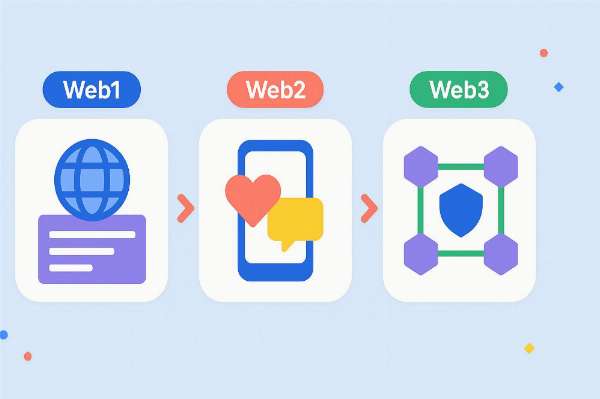- Web3 promises to shift control from tech giants to individual users through decentralized networks, giving you ownership of your data and digital assets.
- Blockchain technology forms the backbone of Web3, creating transparent and secure systems that could transform everything from online transactions to content creation.
- Despite growing enthusiasm, Web3 requires robust internet infrastructure, making high-speed broadband a crucial component for participation.
If you've been shopping for internet service lately, you've probably heard the term "Web3" tossed around, often with the claim that it's going to revolutionize everything about how we use the internet. While it might sound like tech industry hype, Web3 represents a fundamental shift in how the internet could function. Understanding these changes matters whether you're setting up service in a new home or simply curious about where your monthly internet bill is taking you. Let's break down the core reasons experts and early adopters believe Web3 could reshape how we use the internet, and what that might mean for you.
Table of Contents
- Decentralization Puts Control Back in Users' Hands
- True Digital Ownership Through Blockchain Technology
- A More Resilient and Interconnected Internet Infrastructure
- What Web3 Means for Your Home Internet Needs
- Looking Ahead to an Evolving Internet Landscape
Decentralization Puts Control Back in Users' Hands
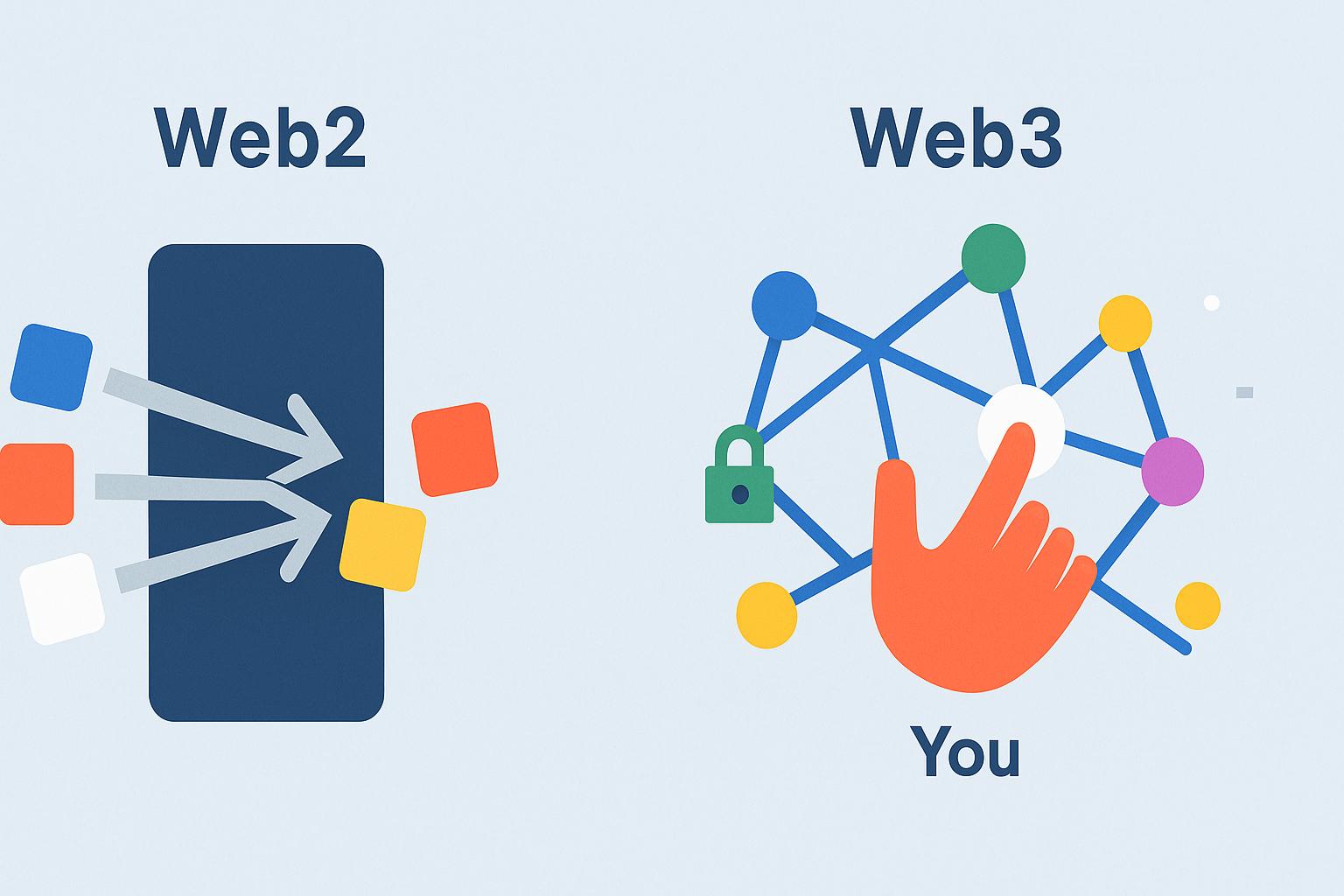
The most revolutionary aspect of Web3 is its decentralized architecture, which fundamentally challenges the current internet's operating model. Tech experts call today's internet "Web2," which is largely controlled by a handful of powerful companies. Facebook, Google, Amazon and similar tech giants host your data on their servers, set the rules for how you interact online and ultimately decide what you can see and share.
Web3 flips this model on its head by distributing control across a network of computers rather than concentrating it in corporate data centers. According to the Pew Research Center, concerns about centralized tech power have grown significantly among internet users, with many expressing frustration over how their data is used and monetized without meaningful compensation or control.
How Decentralization Actually Works
Think of decentralization like the difference between a traditional bank and a community cooperative. In a traditional bank, one institution holds all the records and makes all the decisions about your money. In a cooperative, the members collectively maintain the records and share decision-making power. Web3 applies this cooperative model to internet services through peer-to-peer networks where thousands of individual computers work together to host websites, store data and run applications.
This distributed approach means no single company can unilaterally change the rules, censor content or shut down a service. For example, if you upload a video to a Web3 platform, it's stored across multiple nodes in the network rather than on a single company's server. Even if some nodes go offline, your content remains accessible through the others.
Real-World Implications for Everyday Users
Decentralization has practical consequences that extend beyond philosophical ideals about internet freedom. For content creators, it means platforms can't arbitrarily demonetize your channel or remove your work without recourse. For consumers, it means your purchase history and browsing data aren't automatically aggregated and sold to advertisers. For small businesses, it means reduced dependence on platform fees and algorithm changes that can make or break your online presence overnight.
True Digital Ownership Through Blockchain Technology
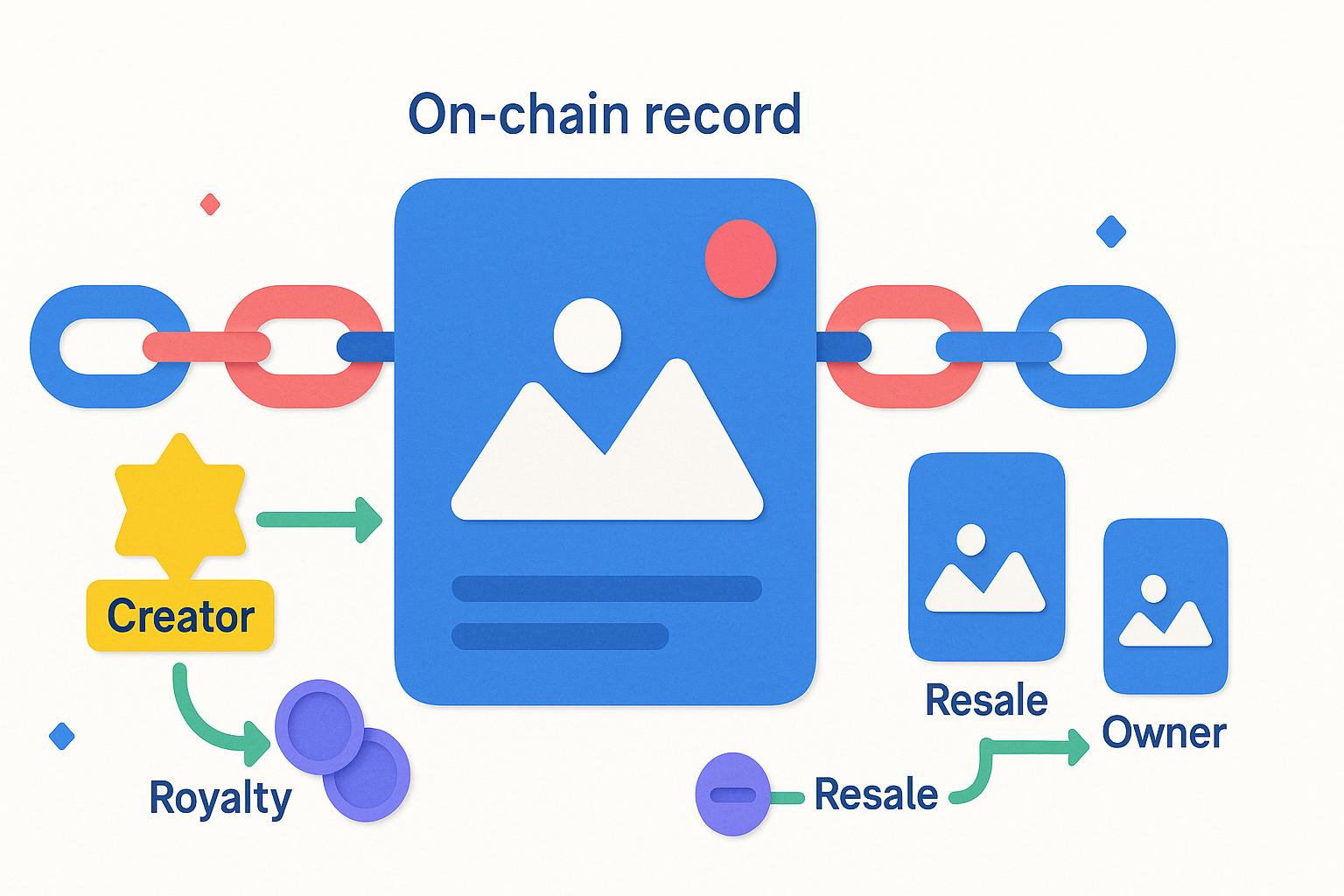
The second major reason people are excited about Web3 is its promise of genuine digital ownership through blockchain technology. Right now, when you buy a digital movie, e-book or game, you don't actually own it — you're licensing it from the company. They can revoke your access, remove the content from their platform or change the terms at any time. Web3 changes this dynamic fundamentally.
Understanding Blockchain-Based Ownership
A blockchain is a public, unchangeable ledger that records who owns what. When you purchase something on a Web3 platform, the transaction gets recorded on the blockchain, creating a permanent, verifiable record of your ownership that exists independently of any single company or platform. This concept extends beyond simple purchases to include your identity, credentials, creative work and even the data you generate while using internet services.
If you create digital art or write a blog post on a Web3 platform, you can prove you're the original creator through blockchain verification. You can then sell, transfer,or license that content while maintaining a permanent record of ownership and provenance. This represents a significant shift from current platforms, where the hosting company typically claims broad rights to anything you upload.
Cryptocurrency and Digital Assets
Cryptocurrency serves as the financial backbone of Web3, enabling direct peer-to-peer transactions without intermediaries like banks or payment processors. But beyond digital money, blockchain technology enables non-fungible tokens (NFTs), which represent unique digital items ranging from artwork to virtual real estate to concert tickets.
While NFTs gained attention through high-profile art sales, their practical applications extend far beyond them. Imagine buying a digital textbook you can resell after you finish the course, concert tickets that can't be counterfeited or digital credentials that prove your professional qualifications without requiring verification from your former employer. This illustrates how blockchain-based ownership could streamline numerous aspects of digital life.
Aspect | Web2 (current internet) | Web3 (emerging internet) |
|---|---|---|
Digital purchases | License to access content | Permanent ownership rights |
User data | Owned and monetized by platforms | Controlled and monetized by users |
Identity verification | Managed by individual companies | Self-sovereign identity systems |
Content creation | Platform owns broad usage rights | Creator maintains full ownership |
The Creator Economy and Fair Compensation
Web3 enables more direct relationships between creators and their audiences. Musicians can release songs directly to fans without record labels taking the majority of profits. Writers can publish articles that readers can purchase directly through cryptocurrency micropayments. Artists can program ongoing royalties into their digital artwork, receiving a percentage each time it's resold.
These mechanisms address long-standing inequities in how creative work is valued and compensated online. Currently, content creators receive only a fraction of the revenue their work generates, with platforms and intermediaries capturing the majority. Web3's ownership model promises to shift this balance significantly in favor of creators.
Smart Shopping: As Web3 applications become more mainstream, they'll demand more from your home internet connection, making it worthwhile to compare internet providers in your area to ensure you have sufficient bandwidth for both current and emerging online activities. |
A More Resilient and Interconnected Internet
Infrastructure
The third compelling reason for Web3's enthusiasm is its potential to create a more resilient, interconnected internet infrastructure. Current internet architecture creates numerous single points of failure. When Amazon Web Services goes down, it can take thousands of websites and apps offline simultaneously. When a social media platform changes its algorithm, it can devastate businesses that depend on it for customer reach.
Distributed Networks and Reliability
Web3's distributed architecture spreads both data and processing across thousands of nodes, making the network inherently more resistant to outages, censorship and attacks. If some nodes fail or are compromised, the network continues to function through the remaining nodes. This redundancy creates a more stable foundation for critical internet services.
The National Telecommunications and Information Administration has emphasized that as our economy and daily lives become increasingly dependent on internet connectivity, building resilient digital infrastructure becomes a matter of national importance, affecting everything from remote work capabilities to access to essential services.
Interoperability and Seamless Integration
Web3 promotes interoperability — the ability for different platforms and services to work together seamlessly. In the current internet landscape, your identity, content and assets are siloed within individual platforms. You can't easily transfer your followers from one social network to another, or use your Amazon purchase history to inform recommendations on another shopping site.
Web3 changes this through open protocols and standards that let different services access the same underlying data (with your permission). Your digital identity could work across multiple platforms. Your payment information could integrate seamlessly across different websites. Your content could be portable from one service to another without losing your audience or starting from scratch.
Enhanced Privacy and Security Features
While blockchain transactions are transparent, Web3 also leverages advanced cryptographic techniques to enhance privacy. Zero-knowledge proofs, for example, allow you to prove something is true without revealing the underlying information — like proving you're over 21 without sharing your exact birthdate or other personal details.
These privacy-enhancing technologies address growing concerns about data breaches and unauthorized access to personal information. Rather than trusting companies to protect centralized databases full of sensitive information, Web3's architecture distributes and encrypts data in ways that make it significantly harder for bad actors to exploit.
What Web3 Means for Your Home Internet Needs
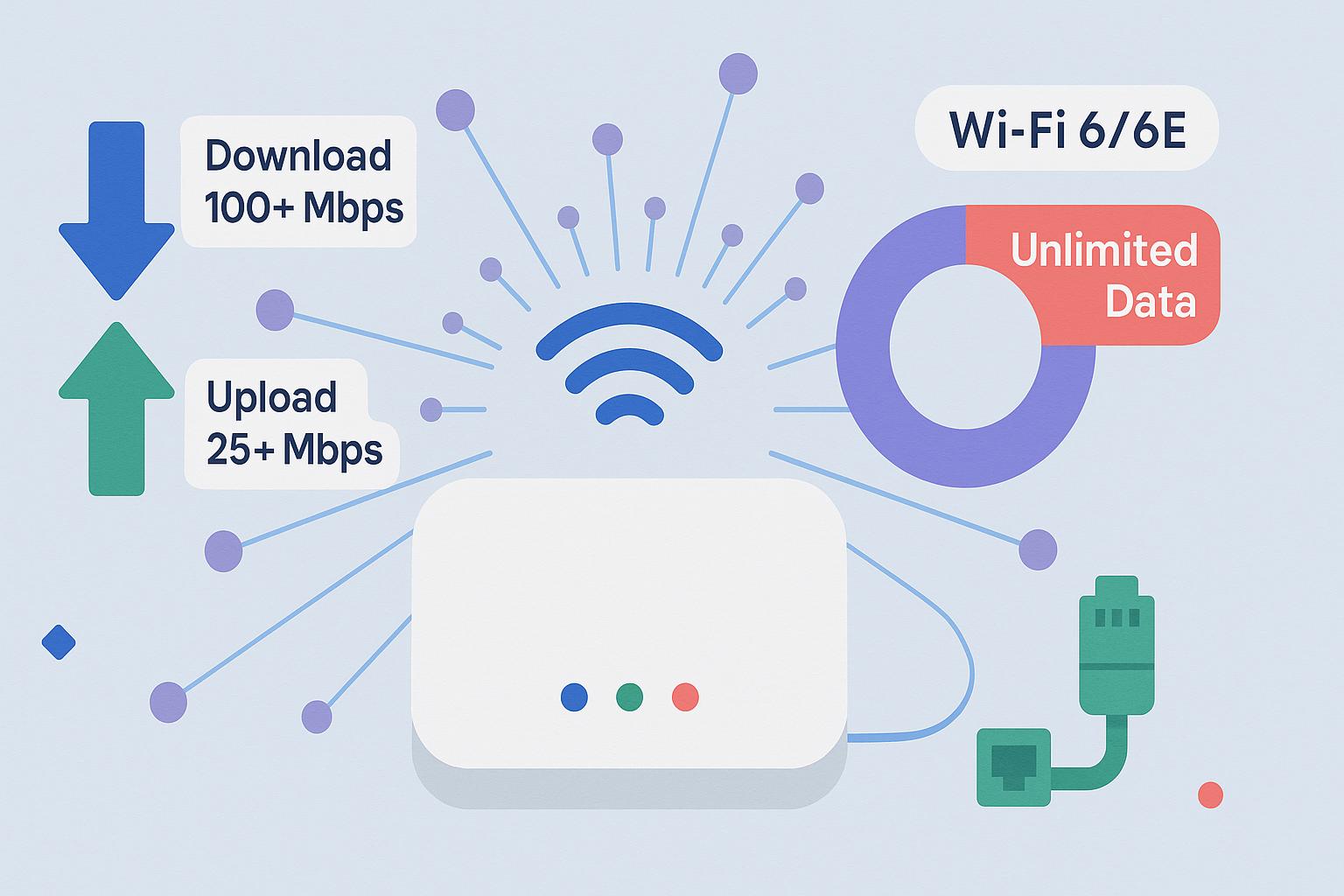
As Web3 applications become more prevalent, they'll likely change what you need from your home internet service. Unlike traditional websites that primarily send data to your device, many Web3 applications require you to actively participate in the network, both sending and receiving data continuously.
Bandwidth and Speed Considerations
Participating in decentralized networks often requires more robust internet connections than simply browsing websites or streaming video. When your device acts as a network node or processes blockchain transactions, you need consistent upload speeds in addition to fast downloads. This makes fiber internet and cable internet plans with symmetrical speeds increasingly valuable for Web3 participation.
If you're planning a move or considering switching internet providers, it's worth considering whether your connection can handle not just today's streaming and video calls, but also tomorrow's decentralized applications. Look for plans offering at least 100 Mbps download speeds and 25 Mbps or higher upload speeds.
Connection Quality Matters: Web3 applications often require consistent, always-on connectivity to participate effectively in decentralized networks, making reliability just as important as raw speed when choosing an internet service provider. |
Data Caps and Usage Limits
Another consideration is data caps. Some internet providers impose monthly data limits and charge extra fees if you exceed them. As Web3 applications potentially increase both the volume and frequency of data transmission, unlimited data plans may become more important for households wanting to fully participate in decentralized networks without worrying about overage charges.
Before committing to an internet plan, check whether it includes unlimited data or what the data cap is. For households actively using Web3 applications alongside traditional internet activities, plans with at least 1.2 TB per month (or better yet, no cap at all) provide peace of mind.
Equipment and Home Network Setup
Your home network equipment also matters more in a Web3 environment. A modern router that supports the latest Wi-Fi standards (Wi-Fi 6, Wi-Fi 6E, Wi-Fi 7) delivers better performance when multiple devices simultaneously access blockchain-based services. Additionally, wired Ethernet connections to desktop computers or dedicated devices running Web3 applications can provide the stability and speed needed for optimal participation.
When setting up utilities in a new home, consider not just your immediate connectivity needs but also how you might want to engage with emerging internet technologies. Investing in quality infrastructure now can save you from needing costly upgrades as Web3 adoption accelerates.
Looking Ahead to an Evolving Internet Landscape
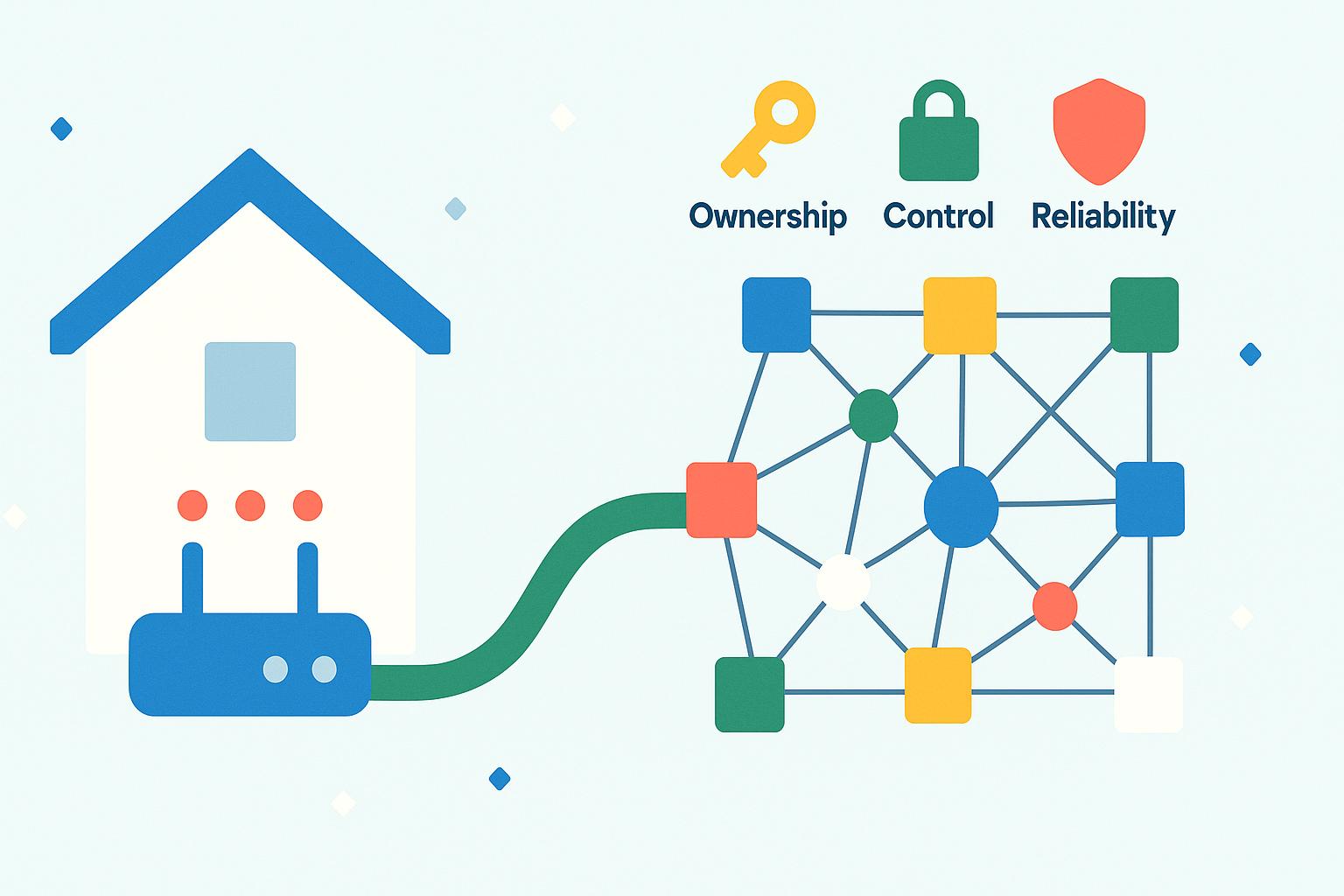
Web3 represents more than just a technological upgrade. It's a fundamental reimagining of how the internet operates and who benefits from it. The promise of decentralization, true digital ownership and resilient infrastructure addresses real frustrations with today's internet while opening possibilities for new types of online interaction and value creation. Whether you're a content creator seeking fairer compensation, a consumer wanting more control over your data or simply someone interested in the future of technology, Web3's potential impact deserves attention.
That said, Web3 is still emerging, and many questions remain about how it will develop, what challenges it will face and whether it will live up to its ambitious promises. What's certain is that these technologies will require robust internet infrastructure to function effectively. As you make decisions about your home internet service — whether you're transferring service to a new address or upgrading your current plan — consider the bandwidth, reliability and features that support both current and future internet use. It's an investment in staying connected to whatever comes next.
Frequently Asked Questions About Web3
Do I need a special internet service to use Web3 applications?
You don't need a special type of internet service, but Web3 applications generally perform better with faster, more reliable connections. Look for plans with at least 100 Mbps download speeds and strong upload speeds (25 Mbps or higher) to comfortably access decentralized applications, especially if you plan to run nodes or participate actively in blockchain networks. Fiber and cable internet offer the best performance for Web3 use.
Is Web3 completely replacing the current internet?
No, Web3 isn't replacing the current internet overnight or entirely. Instead, it's developing as an additional layer and alternative approach that exists alongside traditional internet services. Many experts expect a gradual evolution in which Web3 technologies integrate with existing internet infrastructure, giving users choices about which platform or service they prefer for different purposes. The transition will likely take years and may result in a hybrid internet landscape.
Are there risks associated with Web3 technologies?
Yes, Web3 comes with several considerations and potential risks. The technology is still maturing, which means some applications may have security vulnerabilities. Cryptocurrency values can be volatile, and blockchain transactions are typically irreversible, meaning mistakes can be costly. Additionally, the decentralized nature means there's often no customer service department to help if something goes wrong. Regulatory frameworks are still developing, creating uncertainty about how Web3 services will be governed. As with any emerging technology, it's important to research thoroughly and proceed cautiously.
How does Web3 affect my data privacy?
Web3 offers both enhanced privacy features and new considerations. On one hand, you have more control over what data you share and can maintain ownership of your information rather than surrendering it to platforms. Cryptographic tools enable you to prove things about yourself without revealing unnecessary details. On the other hand, blockchain transactions are typically public and permanent, meaning certain activities are visible to anyone. The key is understanding which information goes on public blockchains and which remains private in encrypted systems.
What internet speeds are recommended for running a blockchain node?
Running a full blockchain node requires a more robust internet than casual Web3 participation. Most blockchain networks recommend minimum download speeds of 50-100 Mbps and upload speeds of 25-50 Mbps, though faster is always better. Equally important is a stable connection with minimal downtime, since nodes need to maintain constant communication with the network. Many blockchain nodes require significant data transfer — potentially hundreds of gigabytes per month — making unlimited data plans important if you're considering running a node from home.
Should I wait to upgrade my internet until Web3 is more established?
Don't wait to upgrade if you currently have inadequate internet service for your household's needs. Even if Web3 adoption progresses slowly, modern internet usage for remote work, streaming, gaming and smart home devices already benefits significantly from faster, more reliable connections. Choose an internet plan that meets your current needs while providing enough capacity for emerging uses. If you're on the fence between two plan tiers, opting for the faster option provides headroom for both Web3 applications and other bandwidth-intensive activities that continue to evolve.


